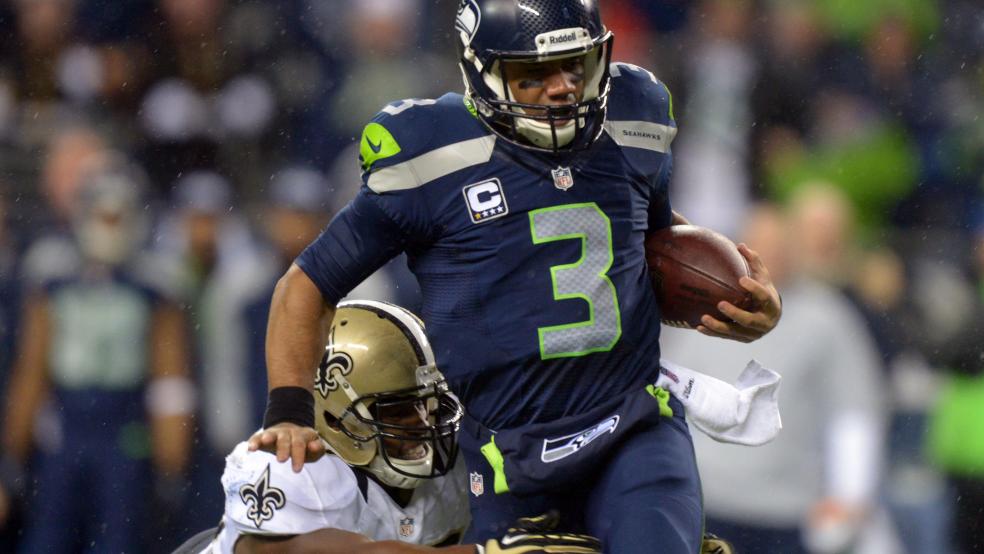Researchers in the U.S. on Monday unveiled a $14 million series of research projects aimed at diagnosing and treating brain injuries in football players and others who have suffered multiple head injuries or concussions.
The projects, partly funded by the National Football League, are aimed at chronic traumatic encephalopathy, or CTE, a condition linked to the loss of decision-making control, aggression and dementia. The condition is tied to repeated hits to the head, such as those experienced by football players, hockey players and boxers. The condition currently can be diagnosed only by examining a person's brain after their death. But researchers with the National Institutes of Health aim to develop tests to detect and treat CTE while the patient is alive.
Related: The Big Business of College Football: Who's Winning?
"This is a public health problem," said Walter Koroshetz, deputy director of the NIH's National Institute of Neurological Disorders and Stroke. "We don't know the mechanics of the head injuries that lead to this, the number and severity that is required to get this. We don't know whether certain people based on their genes are more susceptible or not. There are a lot of questions to be answered."
The NFL in August agreed to pay up to $765 million to settle a lawsuit brought by thousands of former players, many suffering from dementia and other health problems, who accused the league of covering up the risks of brain injury. The league is paying $12 million of the allocated $14 million in research, the rest of which will be funded by the NIH. The $14 million comes from $30 million in research funding the NFL made available to the NIH in 2012.
The research is not focused just on football players, but any people who engage in activities in which they suffered head injury. Researchers say they also hope to better understand the potential relationship between traumatic brain injury and late-life neurodegenerative disorders, especially Alzheimer's disease.
Related: Alzheimer's Funding Should Be a No Brainer
Two of the new research projects will focus on defining the long-term changes that occur in the brain years after a head injury or after multiple concussions. Ten neuropathologists from eight universities will work to describe the chronic effects of head injury in tissue taken from hundreds of individuals as they try to develop standards for diagnosis. Six pilot projects will aim to identify potential biomarkers that can be used to track a person's recovery from concussion.
One of the pilot projects will focus on sports concussions in adolescents. Researchers will examine the effects of sports-related concussions on brain structure and function one month following injury in adolescents who have been cleared to resume playing their chosen sports.
Previous published research has found that former American football players have higher rates of neurodegenerative diseases such as Alzheimer's and Parkinson's disease. There has also been violent and erratic behavior noted among current and former NFL players, including a spate of suicides.
This month, the family of former Kansas City Chiefs' linebacker Jovan Belcher had his body exhumed so his brain could be studied for signs of CTE. Belcher killed his girlfriend and then himself last year. Also earlier this month, five former players for the Kansas City Chiefs football team sued the Chiefs, claiming to be suffering from CTE because of multiple concussions suffered while playing for the team.

